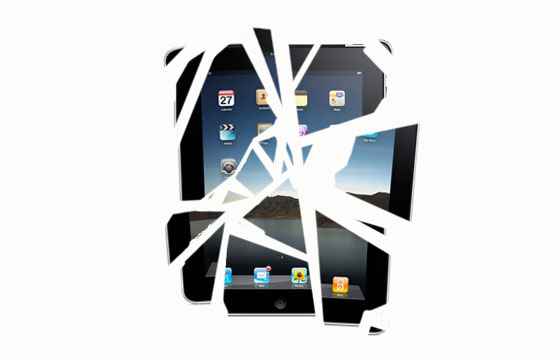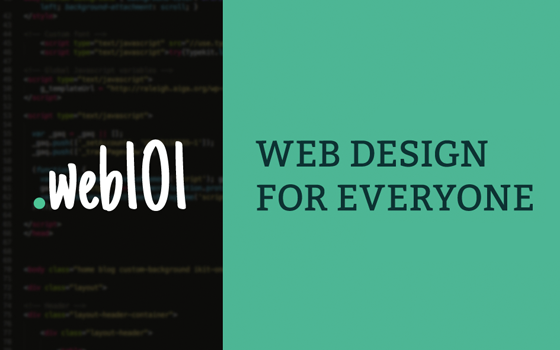
In my last weeknotes, I mentioned that I had purchased an iPad. The iPad seems to be a polarizer of sorts—for many reasons, but one in particular that interests me most—in that it limits the extent to which you can multitask. You can play audio and browse the web at the same time, but you cannot play audio and watch a YouTube video at the same time. If you are signed in to Google chat and then, even just briefly, open another application, like iTunes, you will be signed out of your chat. The iPad will stop the browser’s connection to the web. At first, I found this a bit frustrating. But I’m already seeing benefits to this limitation in certain contexts.
Focused on the iPad
So the iPad, in that it limits web connections to one application at a time, and limits the user interface to one application at a time, could be said to encourage focus. To me, that’s a great thing. Noticing my own decline in focus has been a concern for a while, and I saw the iPad as an experiment that might enable me to focus more closely in certain contexts—reading, in particular. So far, this has definitely been the case. If I’m chatting with someone using the iPad, my attention is fully focused on that conversation. I’m also much more inclined to keep the conversation itself focused (and brief) because typing on the iPad isn’t great in extended amounts.

*No iPads were harmed in the making of this picture.
Fractured on the iPad
But I’ve quickly realized that I can’t really replace my computer at work with my iPad. Trying to replicate my laptop-connected-to-a-nice-big-monitor-based workflow on my iPad results in a distinctly fractured experience. This might change slightly if/when I get the keyboard dock accessory, but the way the iPad handles web connections will probably keep it that way. When I’m at work, I constantly run a browser, which almost always has multiple tabs open—email, chat, calendar, our website’s CMS, and our internal project management application. Even though each of these is a distinct application, the way the browser works fuses them into one almost seamless application in my mind. On the iPad, toggling between web-based applications is more akin to turning one off and another on than keeping them all on at the same time. By the way, this is the train of thought I was on when discussing holistic browsing experiences back last summer in my article about the future of the web. I fully expect advances in parallel computing to make this kind of “natural” multitasking—which is actually just rapid toggling between applications, not simultaneous uses—even better and more productive for us. In the meantime, the illusion of a holistic experience fostered by multi-tab browsers running distinct applications does quite well. When I run my browser at work, there are few non-work distractions that can derail my focus. However, that doesn’t mean that instant messages that pop up, which I often must shift my focus to, don’t interrupt my focus on other important things. But, isn’t that just the way the modern workplace is?
Here’s the part where I shift my focus to that thing-I-heard-recently and turn the post into something a bit more philosophical…
In an interview with Steve Paulson on a recent To the Best of Our Knowledge program on sense of place, Terry Tempest Williams, author of “Finding Beauty in a Broken World,” spoke about what happened to her sense of attention during her time studying prairie dogs in the west:
“…there is nothing happening here! It was like I was in a rehab center with no place to get out. On the fourth day, I thought, ‘what’s happened? I cannot write fast enough to record everything I’m seeing.’ It wasn’t the prairie dogs that had changed. It was that my own soul had quieted down to the point where I could suddenly see again. We move so quickly. We’re in this distracted, fragmented, fractured world. We don’t even recognize wholeness when we’re standing in the middle of it. The other thing that stunned me was that every morning and every night… the prairie dogs emerged from their home borough. They would stand, they would face the rising sun, and I promise you they would press their palms together and stand–almost in a gesture of a sun salutation–for twenty to thirty minutes. And then they would go on about their day. Again at night, they would return to their home borough, press their palms together, face the setting sun, and stand in stillness. Day after day after day, and one could imagine, clear out back to the pleistocene. What do they know that we have forgotten?”
When I read this, I immediately am swept up in the notion of a technology-free life, which, when framed by the hint of contemplative prairie dogs, seems sublime. But, sublime or not in theory, human culture is technological. The possibility of me living a technology free lifestyle is just about zero, and frankly, the likelihood of me enjoying that life is probably slim as well. Technology enables comfort, and we are so far off the beaten evolutionary trail of a “natural” life that it’s actually quite natural for us humans to thoroughly rely upon technology. A friend recently commented upon my ascetic lack of furniture by saying, “Dude, you have a body. You’ll be more comfortable sitting in a chair.” Quite right.
Kevin Kelly provides a helpful balance to my prairie dog-enabled radical swing away from technology: In an interview with Nora Young on the Spark podcast, Kelly talks a bit about how play is an essential element of the experience of using the web:
“One of the interesting things about play is that from an efficiency standpoint—from the usual metrics of productivity—it’s usually considered very wastefull. I think one of the great attributes of the web, actually, is that it can let us waste time in our otherwise very productive lives. So, part of my routine is to kind of go where things lead me to go and to pursue a curiosity to its end. I think that’s very childlike in many ways and delightfully enjoyable and totally unproductive…This playful inefficient aspect of [the web] is a main attraction, and I think, the foundation for a lot of the innovation that we’re seeing. Lots of things start off as very frivolous and are made just because they can be, and from that, new things will develop…Lots of the things we’re seeing that we take as the core foundation aspects of the web began in a playful manner…I think we would be very poor people if we only were productive, I mean, if we were productive all the time—if the only thing we did was work. If the only thing we use this tool for was making more money or making more stuff. I think we should actually delight in the fact that we can use it to waste time, and we shouldn’t feel bad about it because we already work too much.”
What Kelly is saying isn’t directly tied to Williams’ point, but it is directly tied to why I am so quickly swayed by her experience. It ties right in to the tenuous relationship we have with our technology that I began to explore (and was probed in much greater depth in the comments) in my post about human enslavement to technology. When I consider the extent to which I rely upon technology and juxtapose that picture with the “natural” one Williams describes, I react instantly—really, in fear—to what I or we might become—some kind of soulless consuming cyborg creature. But that’s just not realistic, and Kelly points this out. Humans create technology, so our technology is naturally going to be imbued with human characteristics—play being one of the more significant ones.
Ok, so quite the digression… What do you think about how the devices you use affect your sense of attention or focus?




